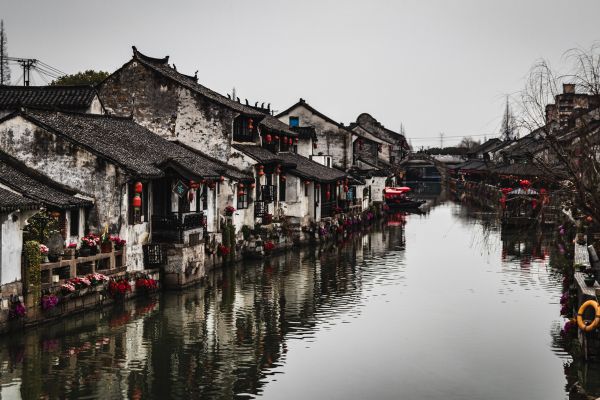
What can we expect from the 2019 Arrangement Concerning Mutual Assistance in Court-ordered Interim Measures in Aid of Arbitral Proceedings by the Courts of the Mainland and of Hong Kong?
Since 1st Oct. 2019, Mainland China and Hong Kong have initiated the mutual assistance in court-ordered interim measures in aid of arbitral proceedings, greatly improving the enforceability of arbitral awards and ensuring the realization of the purpose of arbitration. This can be attributed to “The Arrangement Concerning Mutual Assistance in Court-ordered Interim Measures in Aid of Arbitral Proceedings by the Courts of the Mainland and of the Hong Kong Special Administrative Region” (关于内地与香港特别行政区法院就仲裁程序相互协助保全的安排, hereinafter referred to as the “Arrangement”) signed by Teresa Cheng (郑若骅), Secretary for Justice of Hong Kong SAR, and Yang Wanming (杨万明), Vice President of China’s Supreme People’s Court, in April 2019.
I. Background: What are “interim measures in aid of arbitral proceedings”?
As arbitration is a non-governmental private dispute resolution procedure, the arbitral tribunal cannot exercise the coercive state power to sequester, seize or freeze individual’s property just like the court. Therefore, to ensure that the arbitral proceedings can effectively resolve disputes, it is necessary for some courts to provide support and assistance in the specific link of the arbitral proceedings, during which interim measures constitute an important part of such court-assisted arbitration.
Interim measures, also known as preservation measures, refer to some compulsory measures adopted by the court or the arbitral tribunal against the subject matter, the property of the party concerned, the evidence involved in the case, the actions or omissions of the party concerned, to ensure the fulfillment of the arbitral proceedings and the enforcement of the award, upon the application of either party on the grounds that the normal course of arbitral proceedings may be upset or the award made thereafter may not be enforced due to the actions of the other party or for other reasons.
The widely adopted UNCITRAL Model Law on International Commercial Arbitration 1985 (hereinafter referred to as the “Model Law”) provides for the interim measures in international commercial arbitration in Chapter IV A. Article 28 and Article 46 of China’s Arbitration Law respectively provide for the system of property preservation and evidence preservation in arbitration. In addition, Article 81 and Article 101 of China’s Civil Procedure Law (“CPL”) respectively provide for the preservation of evidence and property before arbitration, and Article 100 thereof provides for the conduct preservation.
II. Groundbreaking: Cooperation between Mainland China and Hong Kong SAR
With the continuous construction of Guangdong-Hong Kong-Macao Greater Bay Area (“Greater Bay Area”), the civil and commercial exchanges between the Mainland and Hong Kong residents become more frequent, and the number of civil and commercial arbitration cases is increasing rapidly. According to the research of the Hong Kong International Arbitration Center (HKIAC), more and more parties from Chinese Mainland choose to conduct institutional arbitration and ad hoc arbitration in Hong Kong.
According to Ms. Yang Ling (杨玲), Deputy Secretary-General of HKIAC, Mainland Chinese clients account for the majority of HKIAC’s international clients. From 2014 to 2017, both the number of cases involved and the number of clients from Chinese Mainland have shown a steady upward trend. In 2017, more than half of the newly accepted arbitration cases had at least one party from Chinese Mainland. Specifically, in 2017, there were 85 out of 156 arbitration cases governed by the HKIAC Administered Arbitration Rules, involving 152 parties from Chinese Mainland. By comparison, in 2014, the above three indicators were 62, 110 and 81. According to the data of HKIAC, parties from Chinese Mainland also participate in a large number of ad hoc arbitrations with Hong Kong as the seat of arbitration. For example, in 2014, of the 88 ad hoc arbitration cases in which HKIAC acted as the designated institution, there were 40 cases participated by 59 parties from Chinese Mainland. It is generally believed that most of the parties from Chinese Mainland are passively involved in overseas arbitration. However, according to the data of HKIAC, the proportion of Mainland Chinese parties who act as the applicant and the respondent is about 1:1.1. [1]
So, in the arbitral proceedings in Hong Kong, can the arbitral tribunal or the party apply to the Mainland court for interim measures if the respondent is from Chinese Mainland, or the property, evidence involved locates, or the legal act of the respondent occurs in Chinese Mainland? The Arrangement provides a solution for this. According to the Arrangement, the parties to the arbitral proceedings in Hong Kong may, before the arbitral award is made, apply for interim measures with the Mainland intermediate people’s court of the place of residence of the party against whom the application is made or the place where the property or evidence is situated, by reference to the CPL, the Arbitration Law, and relevant judicial interpretation.
Likewise, the parties to the arbitral proceedings administered by a Mainland arbitral institution may, before the arbitral award is made, apply to the High Court of the Hong Kong SAR for interim measures in accordance with the Arbitration Ordinance and the High Court Ordinance of the Hong Kong SAR.
[1] 杨玲:《香港国际仲裁中心(HKIAC)与中国内地:趋势与机遇》,载《法制日报》2018年8月13日第6版。
Cover Photo by Chilam Siu(https://unsplash.com/@imchilamsiu) on Unsplash
Contributors: Jian Zhang 张建









